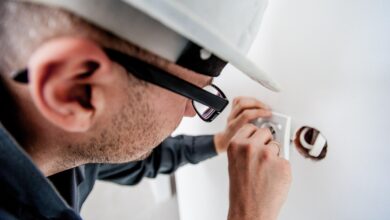Building with AI: How a Nigerian Engineer Is Simplifying Solar Energy Decisions

Building with AI: How a Nigerian Engineer Is Simplifying Solar Energy Decisions
Estimated Reading Time: 4 minutes
- AI for Localized Solutions: Princewill Onyenanu’s GoSolar leverages AI to simplify solar energy decisions specifically for Nigerian households, showcasing the power of localized technological innovation.
- Overcoming Data & Cost Challenges: GoSolar addresses the challenge of limited local data by continuously learning from user inputs and mitigates high AI operational costs through lightweight models and hybrid pipelines.
- Accessible AI Driving Innovation: Princewill highlights that increasingly accessible AI tools are lowering barriers for developers, enabling practical solutions for everyday problems in critical sectors like energy in Africa.
- Practical Advice for Developers: Aspiring AI developers are encouraged to embrace accessible tools, solve personal problems, and prioritize localization and iteration for impactful solutions.
- Nigeria’s AI Ecosystem: While rich in talent, Nigeria’s AI landscape requires more structured mentorship, adequate funding, and a shift in investor comfort towards AI-driven products.
- Introduction
- The Spark of GoSolar: From Personal Challenge to AI Solution
- Building in Nigeria: Overcoming Unique Hurdles with AI
- Tools, Vision, and Advice for Aspiring AI Developers
- Conclusion: Lighting the Path Forward with Localized AI
- FAQ
Introduction
Welcome to HackerNoon’s Building with AI interview series, where we learn how developers around the world are adopting, shaping, and experimenting with AI in their local ecosystems. Today, we’re speaking with Princewill Onyenanu, a Software Engineer, building with AI in Nigeria.
In a world striving for sustainable energy, the transition to solar power often presents a daunting challenge. Calculating wattage, selecting components, and managing costs can feel like navigating a complex maze, especially in regions like Nigeria, where reliable power is a daily concern. This intricate process often leads to uncertainty and costly errors, hindering wider adoption of renewable solutions.
At the forefront of addressing this critical issue is Princewill Onyenanu, a visionary Nigerian Software Engineer. Through his innovative project, GoSolar, Princewill is leveraging artificial intelligence to demystify solar energy planning. His work simplifies complex decisions, empowering individuals and communities to embrace sustainable power more easily and efficiently.
The Spark of GoSolar: From Personal Challenge to AI Solution
Princewill’s journey into AI began with a profound fascination for how intelligent systems operate. “AI has always fascinated me, and what’s even more interesting is that it’s been with us longer than many of us realize,” he explains, citing everyday examples like phone autocomplete and camera smile detection. While the initial barriers to entry, such as deep mathematical knowledge, were once high, the landscape transformed with the advent of accessible tools like OpenAI’s GPT and other large language models (LLMs).
This increased accessibility coincided with a personal frustration that would become the catalyst for GoSolar. A few years ago, Princewill sought to install solar energy at home, encountering significant difficulty in determining the correct components and capacity. “It was expensive to get wrong,” he recalls, highlighting the financial risk involved. This personal struggle illuminated a widespread problem, inspiring him to develop a solution that would prevent others from facing similar hurdles.
GoSolar streamlines the solar planning process using AI. Users simply snap pictures of their household appliances, and the app intelligently analyzes their energy needs. It then provides tailored recommendations for the optimal solar setup, including battery capacity, inverter size, and panel requirements. This intuitive, AI-powered approach removes much of the guesswork, making solar adoption practical and achievable for everyone.
A Glimpse into GoSolar’s Future:
GoSolar is currently in closed beta, gradually opening access. Interested individuals for learning, testing, or partnership can connect with Princewill directly via LinkedIn.
Building in Nigeria: Overcoming Unique Hurdles with AI
Developing an AI solution in a dynamic yet early-stage ecosystem like Nigeria brings its own unique set of challenges. Princewill identifies a primary obstacle: “limited access to high-quality local data, especially around appliance usage, energy patterns, and solar performance in Nigerian households.” Global data often fails to capture the distinct infrastructure realities and consumption habits specific to the region.
To overcome this data gap, GoSolar is designed to be a learning system. It continuously builds its intelligence through localized user inputs and crowdsourced appliance data, allowing it to gradually fine-tune recommendations that accurately reflect real-world Nigerian conditions. This adaptive approach ensures the solution remains relevant and effective for its target audience.
Another significant challenge is the infrastructure cost associated with running AI models. “Running AI models can be expensive given server and API pricing in foreign currencies,” Princewill notes. To mitigate this, he employs a strategy combining lightweight inference models with hybrid pipelines that blend rule-based logic and AI. This approach maintains high accuracy while keeping operational costs sustainable, ensuring the solution’s long-term viability.
The Evolving AI Landscape in Nigeria: Talent and Investment
Princewill describes Nigeria’s AI ecosystem as “growing fast, but still early-stage.” The nation boasts abundant raw talent, including skilled developers, data scientists, and what he lightheartedly terms “vibe coders.” However, structured mentorship, adequate funding, and robust real-world deployment opportunities remain limited. While local communities foster learning and adoption, the emphasis often stops short of building commercially viable products.
Investment for AI-driven ventures in Nigeria is still cautious. Princewill observes that “most local investors aren’t yet comfortable funding AI-driven products due to plain ignorance of the industry and technology, uncertainty around monetization, and compute costs.” This environment has influenced his pragmatic approach with GoSolar, focusing on “practical, applied AI” to solve tangible, high-impact problems like energy access, thereby demonstrating clear value and building a stronger case for future support.
Tools, Vision, and Advice for Aspiring AI Developers
The technical foundation of GoSolar reflects a balance of efficiency and innovation. Princewill utilizes React Native for the mobile app, ensuring a consistent cross-platform experience, and Django for robust backend and API development. On the AI side, he relies on GPT-4.1-mini for intelligent reasoning, such as interpreting appliance data and estimating wattage, valuing its lightweight nature, reliability, and cost-efficiency. He is also incorporating open frameworks like TensorFlow Lite for on-device experimentation to further optimize performance. For deployment, he opts for a Linode VPS.
This carefully chosen mix of technologies aligns perfectly with his strategy: “It balances speed, flexibility, and cost, allowing me to move fast while keeping the infrastructure simple and scalable for the local market.” This practical approach is crucial for developing and sustaining tech solutions within his operational context.
Looking ahead, Princewill is highly enthusiastic about AI’s future. “What excites me most is how AI is becoming more localized and accessible,” he shares. He foresees a future where models are “getting smaller, cheaper, and easier to integrate into real-world products that solve everyday problems,” particularly in Africa. He believes this accessibility will drive “leapfrog innovation” in vital sectors like energy, finance, and education, enabling these regions to accelerate development.
Actionable Steps for Aspiring AI Developers:
Princewill offers invaluable advice for those beginning their AI journey:
- Embrace Accessible AI Tools: Don’t wait for perfection. Start experimenting with existing APIs (like OpenAI’s) and open-source models. The barrier to entry has significantly lowered, making it easier than ever to begin building.
- Solve Personal, Everyday Problems: Let your own experiences be your guide. Princewill developed GoSolar from a personal frustration. Focusing on problems you understand deeply provides valuable context and motivation, often leading to more impactful solutions.
- Localize and Iterate: If your solution targets a specific region, prioritize local data. Be prepared to gather unique insights, crowdsource information, and continually refine your models to accurately reflect real-world, local conditions.
A Real-World Impact: The Solar Transformation
Consider a Nigerian family in Port Harcourt, tired of frequent power outages disrupting their children’s studies and small home business. Overwhelmed by the technicalities of solar installation, they try GoSolar. By simply photographing their fan, TV, and refrigerator, they receive an accurate, customized solar power plan within minutes. This clarity empowers them to invest wisely, avoiding an oversized or insufficient system, ultimately gaining reliable electricity and a brighter future.
Conclusion: Lighting the Path Forward with Localized AI
Princewill Onyenanu’s GoSolar stands as a powerful example of how localized AI innovation can directly address critical societal needs. By simplifying the once-daunting process of solar energy adoption, he is empowering individuals and communities in Nigeria to transition to sustainable power with confidence and clarity. His work underscores the immense value of accessible technology, pragmatic problem-solving, and a deep understanding of local contexts in driving meaningful change.
The story of GoSolar reinforces that the most impactful innovations often stem from a desire to resolve personal frustrations, which then scale to benefit many. As AI continues its rapid evolution, engineers like Princewill, who are deeply engaged with their local ecosystems, will be instrumental in shaping a future where technology truly serves humanity, one simplified solar decision at a time.
FAQ
What is GoSolar?
GoSolar is an innovative project by Nigerian Software Engineer Princewill Onyenanu that leverages artificial intelligence to simplify solar energy planning. It helps users determine optimal solar setups, including battery capacity, inverter size, and panel requirements, by analyzing pictures of their household appliances.
Who is Princewill Onyenanu?
Princewill Onyenanu is a Nigerian Software Engineer and the visionary behind GoSolar. He developed the AI-powered solution to address personal frustrations with complex solar energy decisions and to help others in Nigeria easily adopt sustainable power.
What challenges did GoSolar face in Nigeria?
GoSolar faced challenges including limited access to high-quality local data on appliance usage and energy patterns, and the high infrastructure costs of running AI models with foreign currency pricing. Princewill addressed these by designing GoSolar as a learning system using localized user inputs and employing lightweight inference models with hybrid pipelines.
What tools does GoSolar use?
GoSolar uses React Native for its mobile app and Django for backend and API development. On the AI side, it utilizes GPT-4.1-mini for intelligent reasoning and is experimenting with TensorFlow Lite for on-device optimization. Deployment is handled on a Linode VPS.
What advice does Princewill Onyenanu offer aspiring AI developers?
Princewill advises aspiring AI developers to embrace accessible AI tools (like OpenAI’s APIs), solve personal and everyday problems that they deeply understand, and prioritize localization and iteration by gathering unique local data and continuously refining their models.





